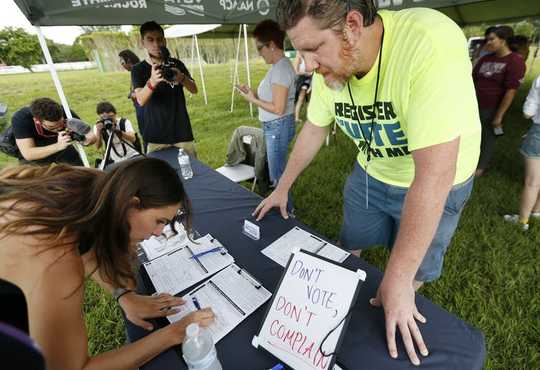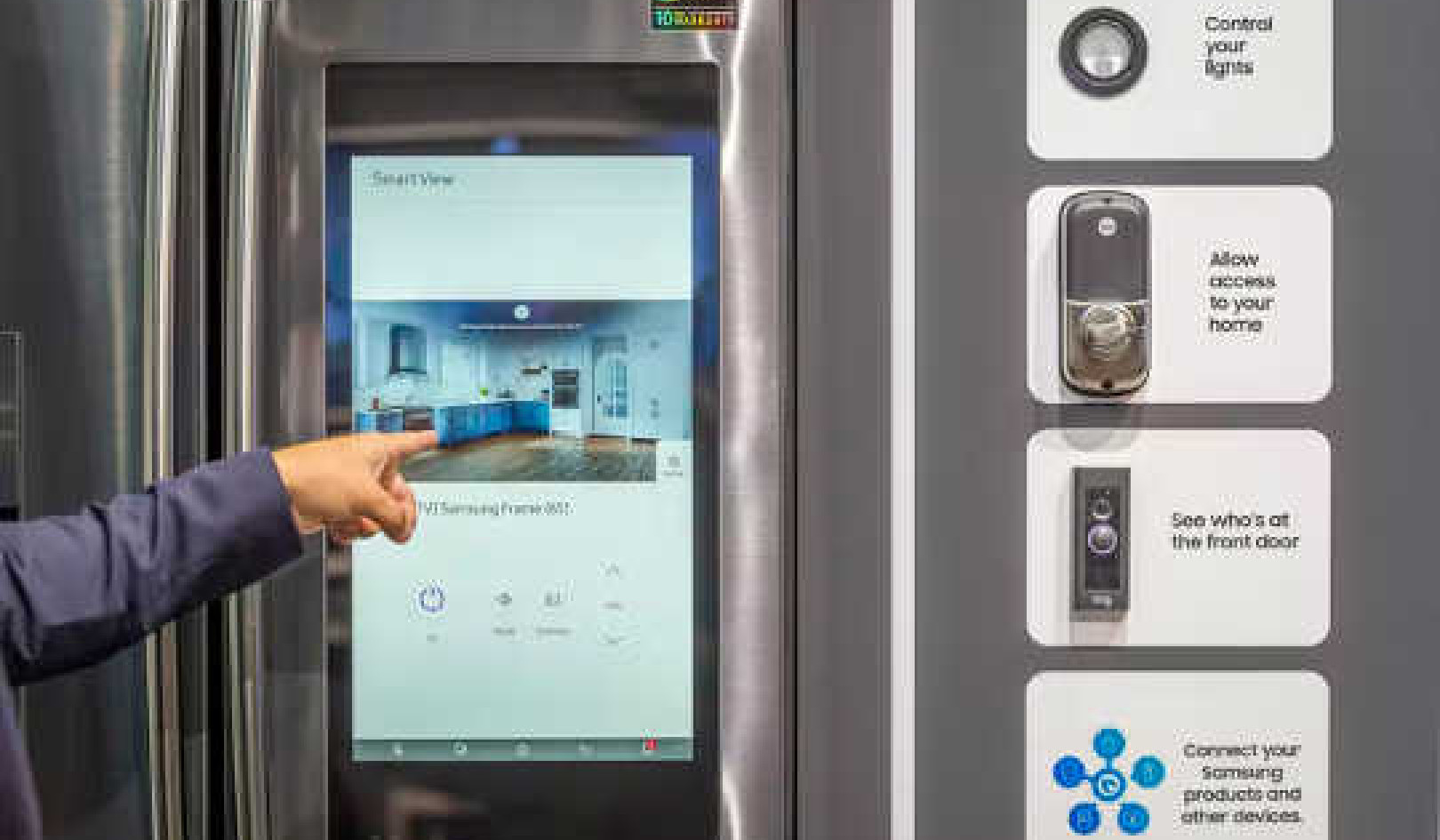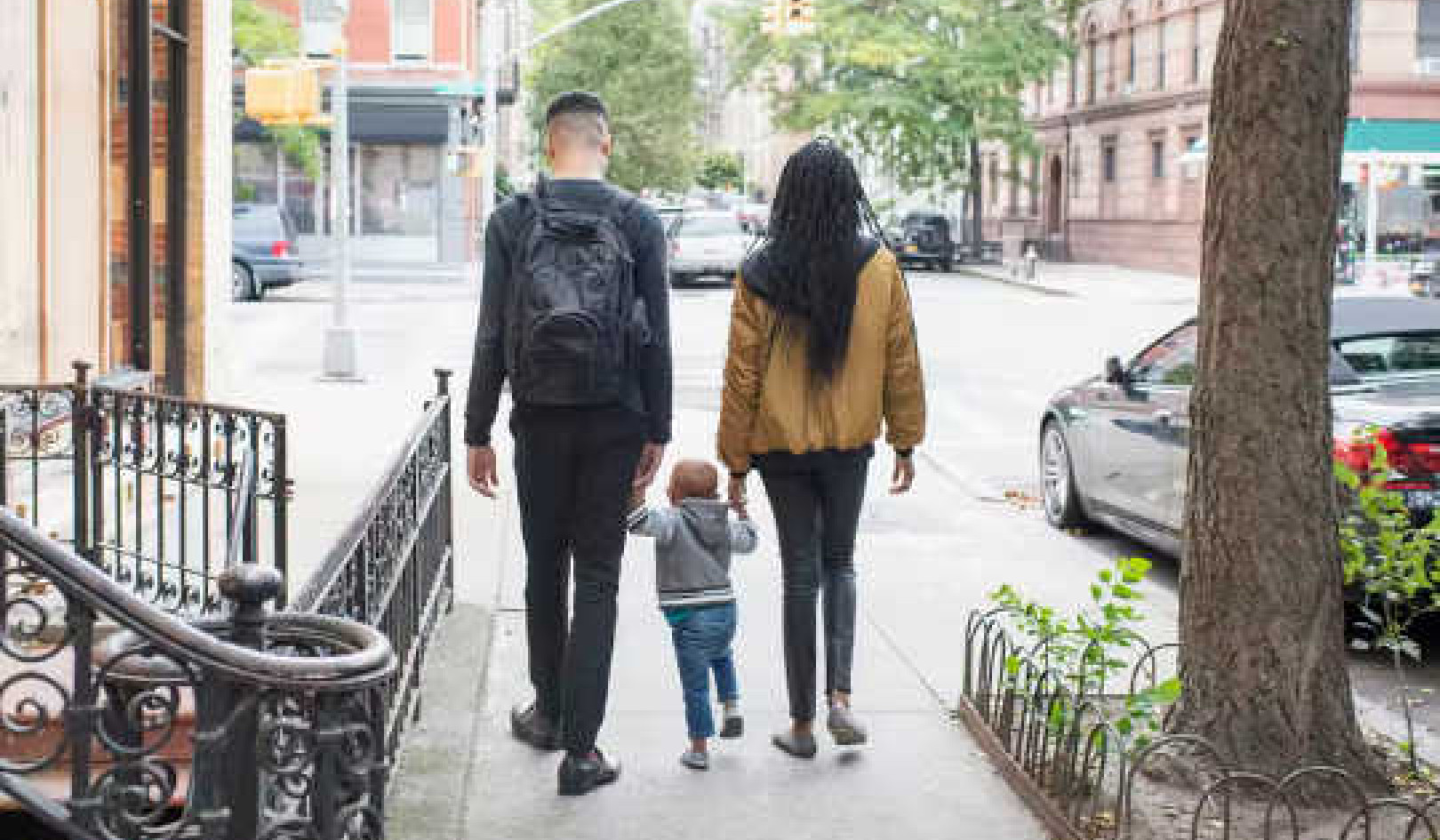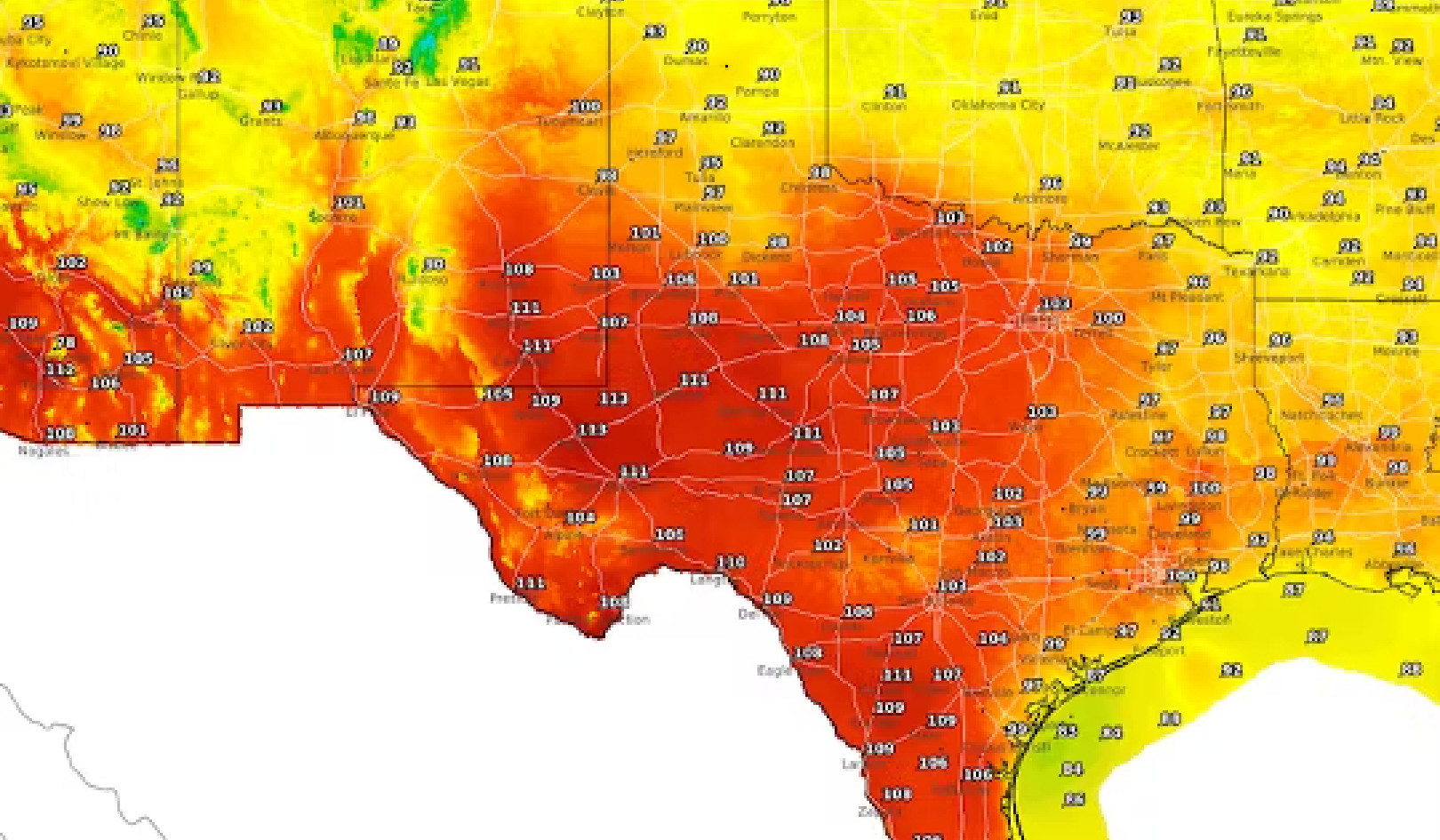
Tour by activists from Marjory Stoneman Douglas High School to get young people registered. AP Photo/Wilfredo Lee
When eligible citizens register to vote, it doesn’t necessarily mean that they will turn out.
Voting in the U.S. is a two-step process. Citizens in every state except North Dakota must first register before casting a ballot.
As we discuss in our article in Electoral Studies, the timing of when a voter registers to vote affects whether they vote in the upcoming election. It also relates to whether they become a repeat voter, or what political scientists refer to as a “habitual voter.”
Our findings could have an impact on turnout this November and in future elections.
Making registration easier
In Canada, Germany and many other countries, voter registration is automatic. Not so in the U.S.
But there have been efforts over the last 25 years to make voter registration easier in the U.S.
Since 1993, with the passage of the National Voter Registration Act, all U.S. citizens can register to vote when they apply for a driver’s license or services at other governmental agencies. Citizens in 37 states are also able to register to vote online, making the process even more convenient.
More recently, more than a dozen states have enacted legislation changing voter registration at DMV offices from “opt-in” to “opt-out.” When applying for or renewing a driver’s license, you are automatically registered to vote unless you choose not to. Initial research on this approach from Oregon suggests that people who are automatically registered, compared to those already registered, were much younger and geographically reside in areas with a racially diverse population, lower income and lower education levels.
Of course, eligible citizens fall through the gaps. That’s where voter registration groups come in, fanning across the country, pen and paper (or smartphones) in hand, to register new voters.
As a final measure to encourage voting, citizens in 21 states and the District of Columbia may register at the polls on Election Day. Many eligible citizens, however, reside in a state in which they must register at least 29 days before Election Day.
But registration doesn’t equal voting. Not everyone who successfully registers prior to Election Day actually goes to the polls, especially in midterm elections.
From registration to the ballot box
In our study, drawing on nearly a decade of voting data in Florida, we find that when voters register affects their voting behavior.
Individuals who register in the waning months prior to Florida’s 29-day registration cutoff are more likely to vote in the upcoming election than others who register throughout the previous election cycle.
However, these last-minute registrants are less likely to vote in future elections. The act of registering to vote, and even voting in the next election, does not translate into becoming a repeat, regular voter. We think this is because those who register close to the deadline may be mobilized to do so by campaign events tied to the upcoming election, but they may not become regular voters for the long haul.
Editor’s note: This is an updated version of an article first published Aug. 8, 2018.
About the Authors
Enrijeta Shino, Assistant Professor of Political Science, University of North Florida and Daniel A. Smith, Professor and Chair of Political Science, University of Florida
This article is republished from The Conversation under a Creative Commons license. Read the original article.

Related Books:
The War on Voting: Who Stole Your Vote--and How to Get It Back
by Richard L. Hasen
This book explores the history and current state of voting rights in the United States, offering insights and strategies for protecting and strengthening democracy.
Click for more info or to order
The People, No: A Brief History of Anti-Populism
by Thomas Frank
This book offers a history of populism and anti-populism in American politics, exploring the forces that have shaped and challenged democracy over the years.
Click for more info or to order
Let the People Pick the President: The Case for Abolishing the Electoral College
by Jesse Wegman
This book argues for the abolition of the Electoral College and the adoption of a national popular vote in American presidential elections.
Click for more info or to order
Democracy in One Book or Less: How It Works, Why It Doesn't, and Why Fixing It Is Easier Than You Think
by David Litt
This book offers a clear and accessible guide to democracy, exploring the history, principles, and challenges of democratic government and offering practical strategies for strengthening democracy in the United States and around the world.






















